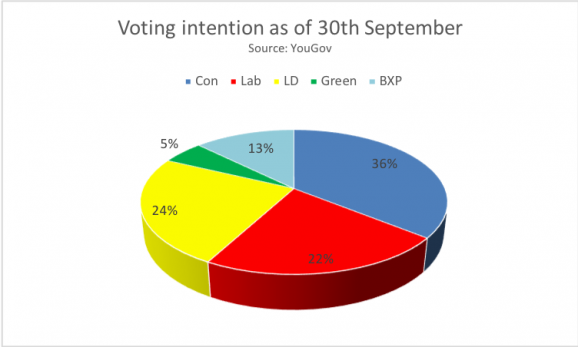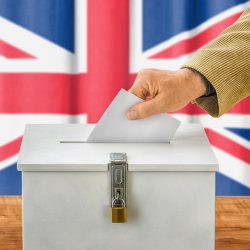Christmas isn’t the only event United Kingdom is gearing up for, the general election due to happen on Thursday, 12 December 2019 under the provisions of the (Early Parliamentary General Election) has got everyone talking. Wondering who to vote for? Take a look at the wonders & blunders some of the parties have made over the years.
The Conservative Party
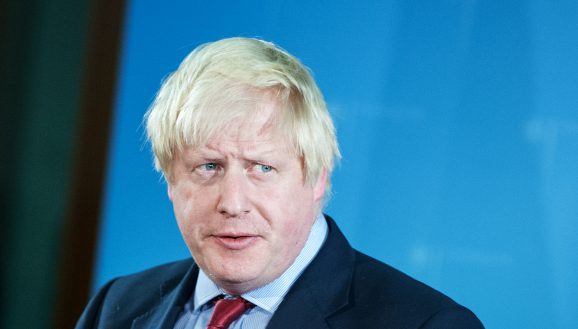
Leader: Boris Johnson
UK Prime Minister, Boris Johnson, has been serving as the Leader of the Conservative Party since July 2019. Prior to that he served as a Member of Parliament for Uxbridge, South Ruislip and Henley. He also served as the Mayor of London and Foreign Secretary previously.
Policies:
Voting for the Tories means voting to get Britain out of the EU. Johnson’s slogan remains getting Brexit done with efforts to get a deal passed through the parliament. Their guiding principles include the promotion of private property and enterprise, the maintenance of a strong military, and the preservation of traditional cultural values and institutions.
They have committed to increase NHS spending by £8 billion over the next five years. Moreover, their agenda includes improving law and order, boosting working age benefits, state pension and further education with a focus on vocational subjects.
Wonders:
Boris Johnson has always been determined to get Brexit done and restore Britain’s democratic sovereignty, which will be music to some voters’ ears
Blunders:
MP’s withheld their support from Johnson’s Brexit deal by passing a backbench amendment instead of backing his agreement in a meaningful vote. Led by Oliver Letwin, it was a majority 322 by 306 votes. MP’s are further likely to table a string of amendments including a push for a second referendum. The Conservatives have so far been consistently unsuccessful in ‘getting Brexit done’.
The Labour party
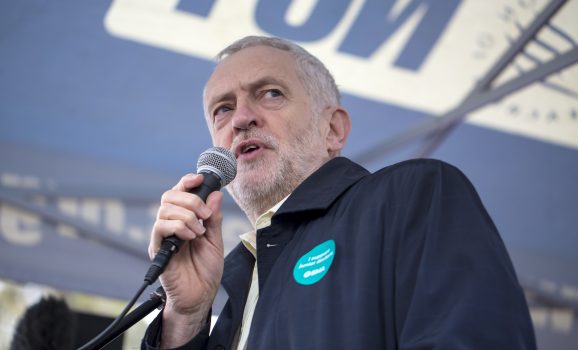
Leader: Jeremy Corbyn
Jeremy Corbyn has been serving as the Leader of the Labour Party and Leader of the Opposition since 2015. He has been the Member of Parliament for Islington North since 1983.
Policies:
Labour party’s formal position is to support a second referendum in which voters could vote to remain set against an improved Brexit deal. Their promises include implementing a £250 billion ten-year infrastructure fund that would include investment in providing low income households with free heating systems, getting rid of the universal credit scheme and two child restriction caps on getting benefits, free prescriptions and care for the elderly. Moreover, they also pledge to solve climate emergency by investing in the production of energy cars.
Wonders:
The party won the second-highest number of seats in the 2017 general elections and is currently the largest party in the Welsh Assembly and the third largest in the Scottish Parliament.
Blunders:
The party’s Deputy Leader, Tom Watson recently shocked Westminster by stepping down from his position. Critics claim that the party’s pro-union and anti-wealth policies could cost the country £9.5billion a year in lost productivity and withdrawal of rich people. Moreover, ex MP, Ian Austin recently told The Times: “Jeremy Corbyn is an extremist who is completely unfit to run the country”
The Liberal Democrats
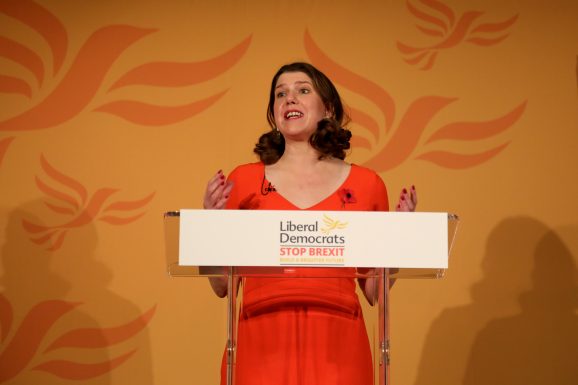
Leader: Jo Swinson
Jo Swinson currently serves as the leader of the Liberal Democrat party. Appointed in 2019, she is the first woman and youngest person to hold the position. She has also been a Member of Parliament (MP) for East Dunbartonshire since 2017.
Policies:
Voting for the “Lib Dems” means voting to revoke Article 50 (the formal process of cancelling Brexit). Their position is to stop Brexit and invest the £50 billion Remain Bonus in public services and tackling inequality.
Furthermore, high on their agenda are claims to tackle climate emergency by generating 80% of electricity from renewables, build a fairer economy by providing free childcare and spending on youth’s skill development.
Wonders: The Liberal Democrats have pledged to spend £2.2bn a year on mental health services, funded by a 1% rise to income tax. They are also the first UK political party to propose a framework for tackling the unregulated Cannabis market in UK.
Blunders:
In the 2010 election, the party pledged to oppose any rise in student tuition fees, however once into power, the party brushed their promises under the carpet and allowed universities in England to charge an annual tuition fee of up to £9,000, nearly three times the previous £3,200 limit. This made a lot of young voters lose trust in the party’s promises.
Scottish National Party
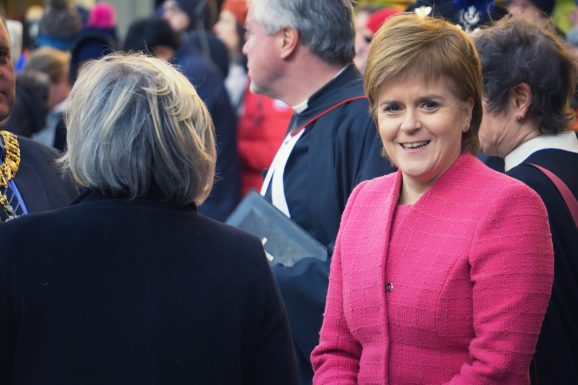
Leader: Nicola Sturgeon
Nicola Sturgeon currently serves as the leader of the Scottish National Party (SNP) and the fifth, First Minister of Scotland. She is also the first woman to hold either positions.
Policies:
The SNP’s message is simple: “Stop Brexit and give us an independence referendum”. This election will be the perfect time that the SNP will push for a second independence referendum as the country feels it’s better off independent and deeply detests Brexit. The party seeks to promote campaigns around welfare reforms, supporting NHS, invest in public transportation and highlight the climate emergency.
Wonders: SNP achieved a breakthrough as a party in the Scottish Parliament under the leadership of Alex Salmond, first becoming the main opposition party, then the ruling party, eventually winning an overall majority in May 2011.
Blunders: The party lost the first independence referendum that took place in 2014. The question asked was “Should Scotland be an independent country?”. 55.3% voted with a NO whereas 44.7% voted with a yes making the turnout the highest (84.6%) for an election referendum in UK since 1910 general election.
Plaid Cymru
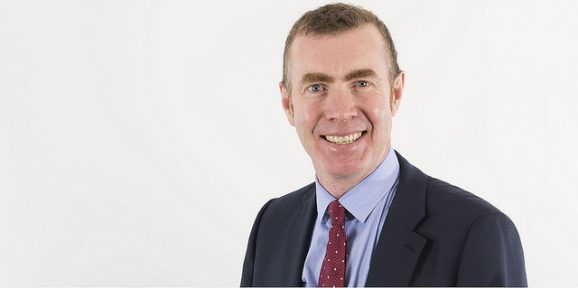
Leader: Adam Price
Adam Price, a Welsh politician, was elected as the leader of Plaid Cymru in 2018. He sat in the National Assembly for Wales for Carmarthen East and Dinefwr since 2016. Openly gay, Price has been featured in the pink list of leading welsh LGBT figures.
Policies:
Party’s priorities include making Wales a better place to live, to learn and to earn. Their prime focus is on creating a “Welsh green jobs revolution”, creating a powerful justice system by recruiting 1600 new police offers, better social and childcare by providing a new £35-a-week payment for every child in low-income families and building affordable homes.
Wonders:
The party has announced a pact with LibDems and the Green party to not challenge seats where pro-remain candidates are running to exhibit national interest to deliver remain.
Blunders:
Speaking at the nationalist party’s campaign launch, Price shared that Westminster policies had failed Wales and that this election could possibly push Wales breaking away from the UK and remaining in the EU as in independent country. Though this bodes well for the plight of the party, many will see it as incredibly detrimental to the United Kingdom.
The Brexit Party
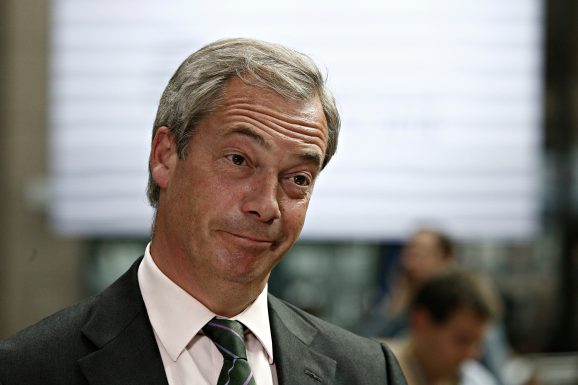
Leader: Nigel Farage
Nigel Farage has been the leader of the Brexit party since 2019. He was also the leader of the UK Independence Party (UKIP) and served as a member of the parliament for South East England in his political career.
Policies:
The Brexit party campaigns for a no-deal, complete freedom to trade around the world on WTO terms and complete withdrawal of the UK from EU institutions. It positions itself as a party determined to restore Britain’s’ democratic sovereignty. It generally draws support from those who are frustrated with the non-implementation of 2016 referendum.
Wonders:
The party was only six weeks old when it won the largest share of national votes in the 2019 European Parliament election in UK. A total of 29 seats were won by Nigel Farage.
Blunders:
The Brexit Party has recently announced that it wouldn’t contest the 317 seats won by Conservatives in the 2017 election, in efforts to avoid dividing the pro-Brexit vote and enabling anti-Brexiters to form a coalition for another referendum. This move has given Tories election campaign a huge boost. The party has also failed to shake claims that it is emboldened by the same far-right tendencies as the UK Independence Party was and still is.
Green Party
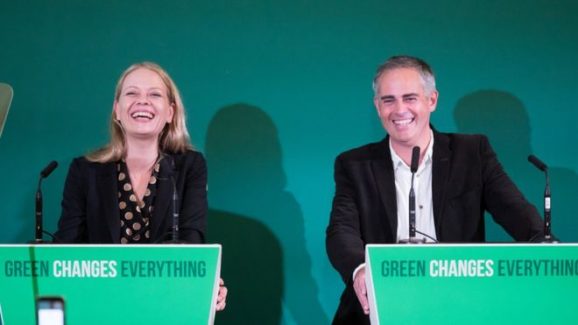
Leader: Jonathan Bartley & Siân Berry
Jonathan Bartley & Siân Berry are the current co-leaders of the Green Party. Jonathan has been on the position since 2016 where he shared the position with Carolina Lucas previously, while Siân was appointed to the role in September 2018.
Policies:
Green’s stance is to remain along with strong policies tackling the climate emergency. Co-leader Sian Berry said: “Some things are even bigger than Brexit. This must be the climate election. The future won’t get another chance.”
The party aims to make Britain carbon neutral by 2030 with its new agenda. Furthermore, social justice and affordable housing are also some of the promises the party puts forth in its manifesto.
Wonders:
The Green Party has launched its campaign with a promise to invest £100bn a year to tackle climate change emergency.
Blunders:
The party lost their share of national vote to more than half 1.8% in 2017 general election compared to 3.8% in 2015.
What are the polls saying?
The Conservatives are leading with 36% followed by LibDems at 24%, Labour 22%, Brexit Party 13% and Green party 5% as of 30th September. However, anything can happen by 12th December.
